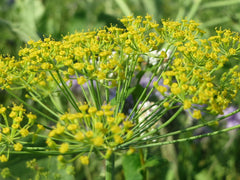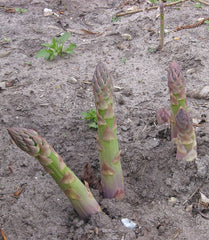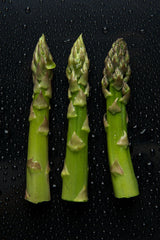Trigonella foenum-graecum, Fenugreek
Fenugreek is a good green manure crop, it is fast growing and vigorous, producing a lot of bulk and fixing a large quantity of atmospheric nitrogen.
The seed is ripened intermittently over a period of some weeks making harvesting more complicated. Plants take about 16 weeks to mature in warmer climes, probably about 4 weeks longer in Britain.
An essential oil is obtained from the seed - used as a food flavouring and medicinally. The dried plant has a strong aroma of hay.
The crushed seed, mixed with oil and massaged into the scalp, is recommended for glossy hair. An infusion of the seed, used as a skin lotion, is said to be good for the complexion.
A yellow dye is obtained from the seed.
Fenugreek is much used in herbal medicine, especially in North Africa, the Middle East and India. It has a wide range of medicinal applications. The seeds are very nourishing and are given to convalescents and to encourage weight gain, especially in anorexia nervosa. The seeds should not be prescribed medicinally for pregnant women since they can induce uterine contractions.
Succeeds in ordinary garden soil, preferring a well-drained loamy soil in full sun. Requires a warm, sheltered position in Britain.
Plants are hardy to about -15°c.
Pre-soak the seed for 12 hours in warm water and then sow in spring in situ.
Fenugreek is widely cultivated for its edible seed in warm temperate and tropical regions. Seed production is more problematic in Britain due to the cooler and moister summers.
This species has a symbiotic relationship with certain soil bacteria, these bacteria form nodules on the roots and fix atmospheric nitrogen. Some of this nitrogen is utilized by the growing plant but some can also be used by other plants growing nearby. When removing plant remains at the end of the growing season, it is best to only remove the aerial parts of the plant, leaving the roots in the ground to decay and release their nitrogen.
Edible uses
An essential oil obtained from the seed is used as a food flavouring in imitation maple syrup, vanilla compositions, liquorice, pickles etc. It also has medicinal virtues. The ground up seeds can also be used as a substitute for maple syrup.
Leaves - raw or cooked. Very aromatic, in small quantities they can be added to salads, otherwise they are used as a potherb, a flavouring for root vegetables, an ingredient of curries etc.
Seedpods - cooked. The roasted seed is a coffee substitute.
A soothing tea is made from the leaves and the seed.


![Photo By Katyare (Own work) [CC BY-SA 3.0 (http://creativecommons.org/licenses/by-sa/3.0)], via Wikimedia Commons.](http://www.openpollinated.co.uk/cdn/shop/products/1280px-Methi_leaves_thumb.jpg?v=1510586837)




